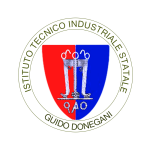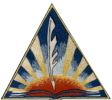CiELO meets on the web. Due to the restrictions imposed by the present global health situation, the CiELO project also had to use alternative ways to ensure that the meetings could take place and especially this kick-off meeting, necessary to shape a complex organizational framework, precisely redefine tasks. of partners and deadlines.
The meeting was divided into two days, thus not going to alter the pattern it should have followed if it had been held in the presence.
During the first day of the meeting, Mr. Tiziano Fazzi (CivicaMente) reviewed the phases of the project, explaining how the partners will be involved in and will contribute to the development of each Intellectual Output. He described the activities in detail and collected opinions to improve the operational aspects of the project.
The partners agreed on the number of students involved and the implementation schedule; considering the duration of each intellectual output, the partners agreed on a common timeline to carry out the specific activities in the classes to ensure uniformity in all schools. The overall duration of each Intellectual Output set up in the GANTT chart is confirmed and includes preparation and follow-up activities.
Ms. Lidia Hrnčević (University of Zagreb) presented the scientific context of the project, as previously agreed with the scientific partner FEEM. She introduced the concept of Sustainable development, defined Circular economy, and explained the most relevant 2030 Sustainable Development Goals for CiELO. Then she focused on the main topics of the project: water and soil issues and challenges.
Ms. Valentina Calcagno presented the Erasmus+ communication and dissemination requirements and suggested actions to share the project contents with the target groups, based on the tools and usual activities of the partners. In particular, schools are encouraged to use School Education Gateway and eTwinning, and all partners shall use their channels to share the project contents and results.
Day two… what happened?
Ms. Francesca Morigi (FEEM) explained the educational approach of the various activities planned for students, starting from the students’ training (IO4) focusing on the Flipped Classroom methodology. Then, she presented field research (IO5) and international groups’ activities (IO6). She encouraged the teachers to share their views and experiences to improve the implementation of these activities.
Mr. Tiziano Fazzi explained the Project Platform (IO1) structure, including its areas and access levels.
Finally, the school representatives presented their institutions and Ms. Valentina Calcagno provided details on the budget approved for each partner and budget category, the consortium agreement, partnership agreement, and the project financial and activity reporting.

















